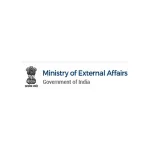Fasting during Ramadan is an obligatory duty for all healthy adult Muslims for a period of one lunar month. A person observing fasting is not allowed to take any form of fluid or nutrition (including via a percutaneous or endoscopic gastrostomy tube) and medication that involves administration via a mucosal route (ie. oral, nasal or rectal). The use of topical, intramuscular and subcutaneous medications, such as insulin, is permitted and does not invalidate the fast. Ultimately the choice to fast or otherwise rests with the individual concerned. Islam permits, and indeed supports, those with appropriate ailments to terminate the fast or be exempted from fasting.
It is important to note that the length of the day varies significantly depending upon the geographical regions and the calendar month. Lack of knowledge, poor prior engagement with the health care professionals, baseline suboptimal control and the stress associated with fasting due to disturbances in the eating patterns, sleep–wake cycles and intercurrent illness are all factors that can adversely affect the health during the fasting period.
Fasting is associated with beneficial changes to a person’s general well-being. In early type 2 diabetes, fasting or very low-calorie diet along with controlled feeds are associated with modest weight loss. It can have favourable effects on the early pathophysiological components of insulin resistance and adiposity and may even lead to reversal of diabetes, but this cannot not be generalised. However, in potentially very advanced forms of T2 (maturity onset) diabetes and, more importantly, in T1 (juvenile) diabetes patients, due to absolute insulin deficiency, there is a theoretical risk of clinically significant ketogenesis and significant hyperglycaemia in the absence of exogenous insulin. This can have potentially serious consequences.
As expected, there is a rapid rise in glucose after Iftar, which could be explained by the high glycaemic index and quantity of the meal, timing of intake of the diabetes medications (taken just before or after a meal) and hormonal changes from prolonged fasting.
A wide range of metabolic benefits from Ramadan fasting have been described in the literature. The eating pattern during Ramadan fasting conforms to the definition of time restricted feeding, which is one form of intermittent fasting. Theoretically, it can serve to preserve lean muscle mass, improve body composition, optimize physiological function and slow ageing and disease processes. Studies have shown that in the final week of Ramadan there is a reduced rate of oxygen consumption and lower resting heart rate, indicating a slowing of metabolism. Ramadan fasting has been shown to induce a significant reduction in fat percentage in overweight and obese people, leading to weight loss. A significant reduction in the inflammatory markers like interleukin 1β, interleukin-6, tumour necrosis factor alpha has been reported. This is a beneficial effect. Systolic and diastolic blood pressures, body weight and body fat percentage has been demonstrated to be reduced at the end of the third week of Ramadan. There is growing evidence that short-term fasting can improve patient response to cancer chemotherapy, whilst providing protection from its toxicity.
Fasting in Ramadan has been shown to be associated with significant hypoglycaemia, if medication doses are not adjusted appropriately. Potential risks associated with fasting and diabetes are disturbance in glycaemic control manifesting as hypoglycaemia and hyperglycaemia which is not good. In addition metabolic emergencies, such as diabetic ketoacidosis (DKA), hyperosmolar hyperglycaemic syndrome (HHS), dehydration, renal impairment and hypotension and thrombosis secondary to hyperglycaemia and dehydration can also occur . Further, cardiometabolic factors such as blood pressure and lipid profiles may also be subject to changes during the Ramadan fasting.
A patient’s decision to fast should be made after ample discussion with his or her healthcare provider, with informed discussion on the risks involved, adjustment of the medications and the recognition of “red-flag” signs. Like the usual management of diabetes, the management plan must be individualized. Patients classified as very high or high risk, including those with Type 1 diabetes and pregnant women with diabetes need close medical supervision if they insist on Ramadan fasting. This group however has been exempted from fasting as per the Islamic guidelines and need to be counselled accordingly because of risks involved.
Acknowledgement: The scientific help rendered by Dr S K Wangnoo, Consultant Endocrinologist, Apollo Hospital in writing this article is greatly appreciated.





